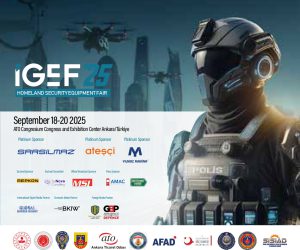Afghan soil has been home to several disasters over the centuries including invasion by foreign powers like the British in the 19th-century, the U.S and the Soviets in the 20th C.E, a long-running civil war, the rule of the Afghan Taliban 1.0, new interim government, and recently looming humanitarian catastrophe amid US withdrawal.
One of these humanitarian issues is the exclusion of women from the political arena and concerns about women’s rights violations. Upon scrutinization, the infringement of women’s rights under the Taliban can be observed over the years. Women’s education was outlawed and were restricted to their houses unless accompanied by a male. Similarly, they were also denied access to jobs in the government and private sector. According to research, women’s low education, poor health outcomes, and limited engagement in the workforce account for more than half of Afghanistan’s development losses.
Gender equality is a key component of long-term development, but it is particularly difficult to achieve in a country like Afghanistan, where conflict and patriarchy abound. Even the scant attempts of participation in the areas such as education, workforce, and politics are in jeopardy of being reserved for men only.
RIWI, a Toronto-based global data collecting organization, launched a study regarding the alarming scenario through the real-time sentiment data from Afghans in a secure and anonymous manner. Between August 27 and November 1, 2021, RIWI employed Random Domain Intercept Technology to cumulate data from over 12,000 people over the age of 15.
Read More: Russia vs Ukraine or NATO: Where do the conflict lies?
The technique assures that everybody visiting the internet, regardless of device kind, has a possibility of being exposed to the survey. As teenage girls are outlawed from attending school. Women have been advised that, with the exception of healthcare professionals and a few other limited exceptions, they cannot return to work.
Meanwhile, the probability of child marriage, which was frequent in rural areas of the country before the Taliban took power, is reaching its echelon. The examination further clarified the deteriorating situation, as the stats suggested that 60 percent of the respondents answered that women were unable to work securely in their localities while 63 percent believed that this pattern will continue in the foreseeable future under the Taliban’s regime.
Furthermore, reports by Amnesty International suggest that women have been drawn out of the cabinet, Ministry for Propagation of Virtue and Prevention of Vice has taken place of the Ministry of Women Affairs from the government. Thus, hampering women’s representation in the government under the guise of Shariah law.
The findings of RIWI’s poll corroborate the testimonies of Afghan citizens and refugees who describe a mounting hostile climate for women and girls. The abolition of their rights and denial of chances is taking place in the midst of a full-fledged humanitarian crisis, one that greatly affects women.
Families are prone to marrying their daughters as a forced improvision to poverty that has become a norm in Afghanistan. Women’s rights have been curtailed by ceasing their economic participation at work. This compounded economic issues for many families who had previously enjoyed consistent professional salaries.
Read More: International Peacebuilding Concept: An Analysis of Afghanistan Conflict
While eliminating women from government employment has created a large gap in the state’s ability to rule effectively. Gender-based violence is increasing against women and significant blockages can be observed in the articulation of their opinions in a political setting.

About Author:
Mariam Rehman is a student of Peace and Conflict Studies with keen interest in South Asian Regional politics and its dynamics.
- Global Defense Insighthttps://defensetalks.com/author/umair/
- Global Defense Insighthttps://defensetalks.com/author/umair/
- Global Defense Insighthttps://defensetalks.com/author/umair/
- Global Defense Insighthttps://defensetalks.com/author/umair/













